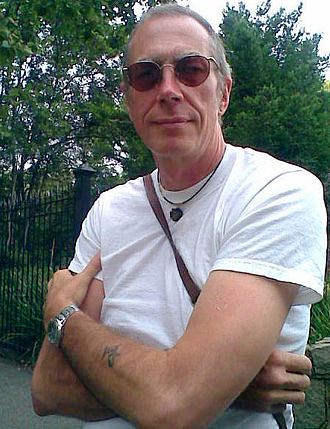Philosophy of non-classical logics: Towards problems of paraconsistency & paracompleteness June 26-27, 2015
Workshop organized by Marcos Silva and Ingolf Max You can download here the poster There is an ongoing philosophical and logical debate about motivations in accepting or rejecting the principle (law) of (non-)contradiction and the principle (law) of excluded middle. A logic rejecting the principle of non-contradiction is called paraconsistent and a logic rejecting the principle of excluded middle is called paracomplete. If both principles are duals of each other we have some reason to reject both principles and get paranormal systems. But what does it really mean to reject a classical principle (law)? And what are the philosophical consequences for this refusal? In which sense would it still be possible to defend nowadays that there is just one true logic, if we have such a great diversity of logics? Among the famous logical systems which are paraconsistent but not paracomplete are, for instance, the da Costa systems. Intuitionist logics are paracomplete but not paraconsistent. And a lot of systems of relevant logic are paraconsistent as well as paracomplete. To evaluate these systemsí philosophical relevance, we have to inter alia examine the logical form of their atomic formulas, the logical behavior of their negation, conjunction and disjunction as well as the properties of logical consequence relations. From a philosophical point of view it is very important to understand which elements are responsible for such deviations from classical logic. E.g., do we have only local reasons? In the case of Jaskowski's version of paraconsistent logic we have to change the conjunction. In the da Costa systems mainly negation is under attack. Or do we have global reasons like in systems of first degree entailments? (Belnap, Dunn, Priest). What is the position of paracomplete, intuitionist approaches (Brouwer, Heyting and their followers)? This workshop shall represent a privileged platform to evaluate proposals for a more integrated and general approach to philosophical motivations and consequences in the emergence of non-classical logics. Call for papers Topics may include:
Abstracts (500 words maximum) should be sent via e-mail before November 15th 2014 to: istanbul2015philosophyncl@gmail.com Notification of acceptance: December 1st 2014.
|
Keynote Speaker
Graham Priest Contributing Speakers Patrick Allo, Centre for Logic and Philosophy of Science, Free University of Brussels, VUB, Belgium, Hard and soft logical information Diderik Batens, Ghent University, Belgium, A piece of logical handicraft illustrating a philosophical position Ross Brady , Dpt of Philosophy, La Trobe University, Australia, The use of definitions and their logical representation in paradox derivation Walter Carnielli and Abilio Rodrigues, State University of Campinas and Federal University of Minas Gerais, Brazil, An epistemic approach to paraconsistency: dealing with evidence and truth Massimiliano Carrara, University of Padua, Padova, Italy, On the exclusivity of logical negation Cian Chartier ILLC, University of Amsterdam, The Netherlands, Indefinite extensibility from revision sequences Diogo Henrique Bispo Dias Dpt of Philosophy, USP, Brazil, A paraconsistent defense of logical pluralism and relativism Matthias Jenny, Dpt of Philosophy, Massachussets Institute of technology, Cambridge, USA, Denial won't get you anywhere Ingolf Max, University of Leipzig, Germany, The explication of paraconsistency, dialetheism and paracompleteness in classical logic syntactically extended by functorial variables David Miller, University of Warwick, UK, The non-classical side of classical logic Itala M. Loffredo D'Ottaviano and Evandro Gomes State University of Campinas and State University of Maringa, Brazil Vasiliev's ideas for non-Aristotelian logics: insight towards paraconsistency Pawel Pawlowski and Rafal Urbaniak Ghent University, Belgium, Gdansk University, Poland, First steps towards non-classical logic of informal provability Abilio Rodrigues and Walter Carnielli, Federal University of Minas Gerais and State University of Campinas, Brazil, What would be a falsitymaker for the principle of non-contradiction Fabien Schang, National Research University Higher School of Economics, Moscow, Russia, Catuskoti: Paracomplete, Paraconsistent, Both, or None? Koji Tanaka, Australian National University, Canberra, Australia, Paraconsistency and external justification James Trafford University for the Creative Arts, Epsom, United Kingdom, Abstract duality and co-constructive logic Alper Turken, Bogazici University, Istanbul, Turkey Hegel and the idea of negative self-relatedness Elia Zanardi, University of Lisbon, Portugal, Against the world
|
||||

